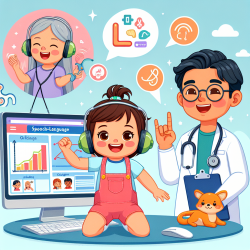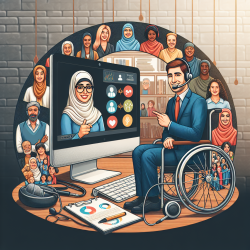As a speech-language pathologist (SLP) committed to improving outcomes for children, it is crucial to implement evidence-based assessment practices. A recent study titled "Implementing Evidence-Based Assessment Practices for the Monitoring of Spoken Language Outcomes in Children who are Deaf or Hard of Hearing in a Large Community Program" provides valuable insights for SLPs.
The study, published in the Canadian Journal of Speech-Language Pathology and Audiology, evaluates the effectiveness of an online learning module aimed at changing SLPs' perceptions about outcome monitoring and assessment protocols for children who are deaf or hard of hearing. Using principles of integrated knowledge translation and the Ottawa Model of Research Use, the study demonstrates how these methods can support the implementation of evidence-based assessment protocols.
The online learning module was designed to address barriers and enhance supports related to the practice environment, potential adopters, and the evidence-based innovation itself. The module included:
- An executive summary
- A 40-minute webinar
- Desk references for outcome monitoring assessments
- Materials to support the implementation of the Preschool Language Scales, Fifth Edition (PLS-5) and the MacArthur-Bates Communicative Development Inventories (MBCDI)
- Instructions for online data reporting
SLPs who completed the module reported improved perceptions about outcome monitoring and a better understanding of the procedures to be implemented. The study found significant positive changes in SLPs' attitudes towards the new assessment procedures and their intentions to implement them in practice.
Implementing evidence-based assessment practices not only improves clinical practice but also enhances service delivery and outcomes for children who are deaf or hard of hearing. The study's findings underscore the importance of using theory-driven and stakeholder-informed approaches to develop effective implementation strategies.
For practitioners looking to improve their skills and outcomes for children, engaging with such evidence-based resources is essential. The online learning module used in this study serves as a valuable tool for translating research into practice.
To read the original research paper, please follow this link: Implementing Evidence-Based Assessment Practices for the Monitoring of Spoken Language Outcomes in Children who are Deaf or Hard of Hearing in a Large Community Program.










